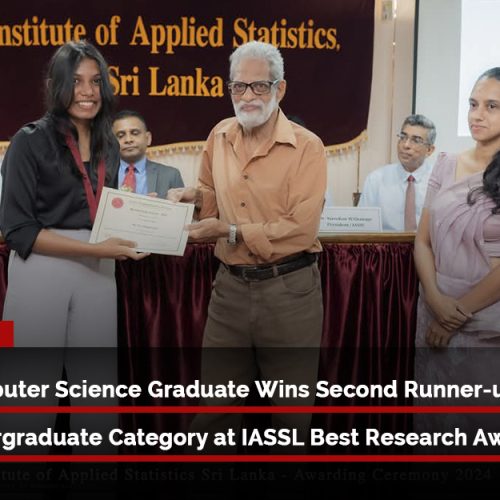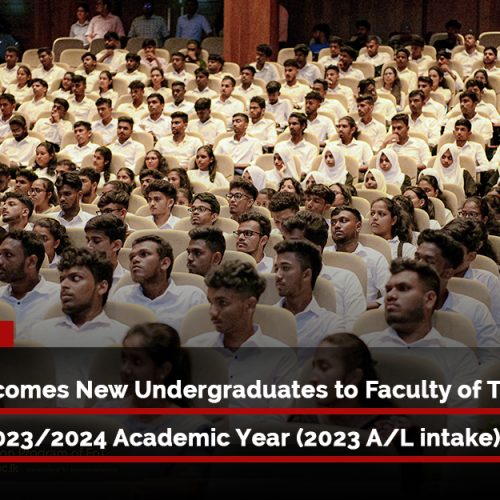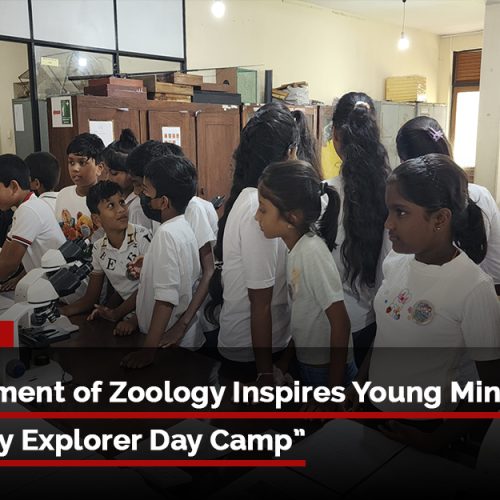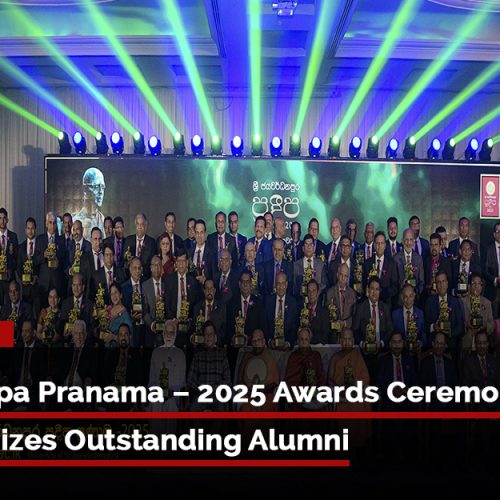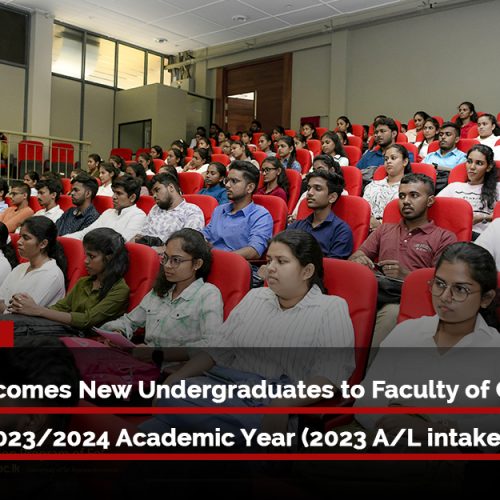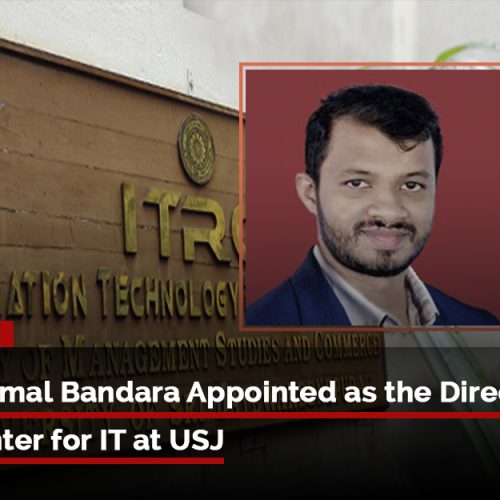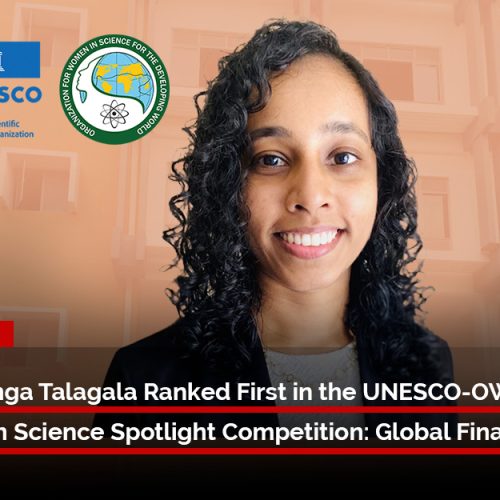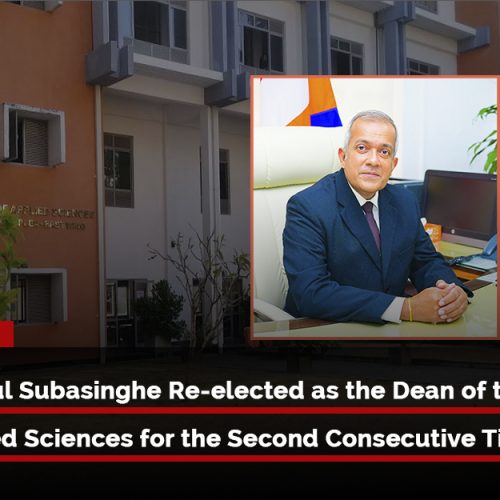“Sri Lanka is an oasis. In the future, greater number of the world population will follow this country’s method because every other country will be in disaster without an effective sustainable mechanism. Your method of sustainability will be the key for the future” said Prof. Peter Timmerman of Faculty of Environmental Studies, York University, Toronto, Canada at Department of Forestry and Environment Science, University of Sri Jayewardeneprua.
Prof. Peter Timmerman delivered his speech at the MSc in Forestry and Environment Management inaugural session which was held at the Forestry auditorium, University of Sri Jayewardenepura on 27th of March 2015. Dean of the faculty of graduate studies, Prof. Swarna Piyasiri; Dean of the Faculty of Applied sciences, Prof. Sudantha Liyanage; Head of the Department of Forestry and Environment science, Dr. Prashanthi Gunawardana; Professor Department of Forestry and Environment science, Prof. Hiran Amarasekara; Coordinator of Post graduate Diploma in Forestry and Environment science, Dr. Priyan Perera also addressed the gathering. Prof. Timmerman is in Sri Lanka these days working on his research project with Prof Hemanthi Ranasighe.
He further added that Scientific researche should benefit the world in Global Situation or help environment students. The major problems that the world is having today and near future are;
Deforestation
Global Warming
Loss of Species
Threat to basic ecosystem functioning
Human population rising to 9 Billion
Breach of nuclear barrier
Hence more of the present is not an option. People should definitely look for sustainability. Sustainability is a story that keeps going. Through the acts of the 21st century deciding how the world will look like for another 10,000 years. Sustainable behavior in an instance doesn’t work . What matters is the “Sustainable model for living”. In this, sustainable stories are important.
The modern life model of the people is based on; standard economics, self interested rational consumers, “romantic individualism”, and with infinite desires which never fully satisfied. The industrial revolution has led people to “shop” for the needs they have. According to the romantic individualism people expect freedom and break free from chains. But a huge contrast has built between individualism and life as a collective mass. It’s so contradictory that all people expect freedom but they end up in excessive work and stress.
World population is in desperate need for a paradigm shift. They should understand that they live within a bounded, finite planet and take “life conditions not as constrains”. A new ecological economics is a need. Freedom within is gained because of the earth we live in. The option is not to go against the grain but going with the grain of things. Because the meaning of human life is close to the earth life because human is a earthling and a part of nature. If the trend continues, the world will be end up heavily degraded and a degraded earth is a degraded life.
 Sri Lankans has a very sustainable lifestyle with three key components.
Sri Lankans has a very sustainable lifestyle with three key components.
Village
Tank/Forest
and Temple
This depicts the village life of the people fused with natural environment and Buddhist teaching. With all the trouble that Sri Lanka had over the years; the natural environment, resources and humanity survived because of the sustainability of that model, He added.

Prof. Peter Timmerman is a Senior Professor in the Faculty of Environmental Studies, York University Toronto. His main areas of research currently include environmental philosophy and ethics, with special reference to topics such as nuclear waste management, climate change, and ecological economics. His earlier publications include a monograph on climate change (Vulnerability, Resilience and the Collapse of Society (1983)); reports to various nuclear commissions (including The Long Haul (1994); and the editing of a volume in the Encyclopedia of Global Environmental Change (2001). His most recent publications are on topics ranging from the music of John Cage to Buddhist ethical responses to Genetically Modified Organisms. He supervises/advises PhD students in topics ranging from Environmental Music to Deep Ecology. He is on the board of the Canadian Forum on Religion and Ecology (CFORE), and writes extensively on religious and spiritual teachings as they apply to environmental concerns. As part of an SSHRC funded project on the ethical foundations of ecological economics, he writes on the basic tenets of alternative economic systems around the world. He appears on television from time to time as a commentator.
– Binoy Abeywickrama



